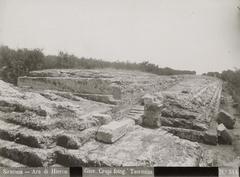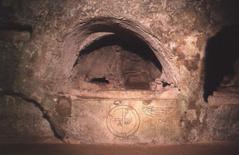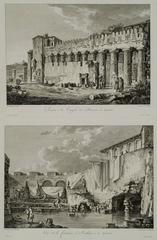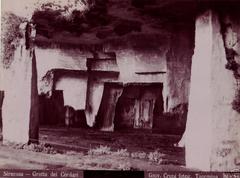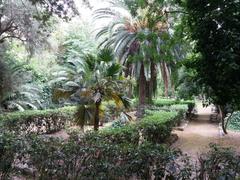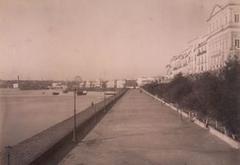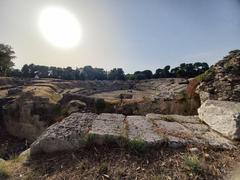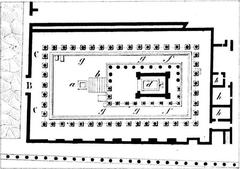Museo Dei Pupi Visiting Hours, Tickets, and the Sicilian Puppetry Tradition
Date: 04/07/2025
Introduction: The Cultural Heartbeat of Sicilian Puppetry
Opera dei Pupi—the iconic Sicilian marionette theatre—stands as a testament to Sicily’s vibrant artistic legacy. Established in the late 18th and early 19th centuries, this tradition animates epic tales of knights, battles, and medieval chivalry, drawing from sources like the Carolingian cycle and legends of Charlemagne. The “pupi”—elaborately crafted wooden and metal marionettes—are brought to life by master puppeteers (“pupari”) whose skills blend dramatic manipulation with a unique, evocative vocal style known as “vuciata” (Sicilian Magpie; La Sicilia in Rete).
The Museo Dei Pupi, with its renowned Museo Aretuseo dei Pupi in Syracuse, plays a pivotal role in safeguarding and promoting this living tradition. Recognized by UNESCO as a “Masterpiece of the Oral and Intangible Heritage of Humanity” since 2001, the museum not only exhibits historic and contemporary puppets but also serves as a dynamic center for performances, education, and cultural exchange (UNESCO Intangible Heritage; Museionline).
Contents
- The Origins and Evolution of Opera dei Pupi
- Artistic and Technical Distinctions
- Narrative Themes and Community Impact
- Family Dynasties and the Living Tradition
- UNESCO Recognition and Global Reach
- Modern Revivals and Innovations
- Museo Aretuseo dei Pupi: Collections, Exhibits, and Visitor Experience
- Practical Visitor Information: Hours, Tickets, and Accessibility
- Interactive Experiences and Educational Activities
- FAQs
- Conclusion and Key Visitor Takeaways
The Origins and Evolution of Opera dei Pupi
Opera dei Pupi arose during a period of urban and social transformation in Sicily, rapidly becoming a popular entertainment form in town squares and neighborhood theaters (Sicilian Magpie). The marionettes themselves, “pupi,” depict legendary figures from medieval epics and local folklore, serving as both entertainment and a vehicle for communal identity.
Artistic and Technical Distinctions
The artistry of Opera dei Pupi lies in its nuanced craftsmanship. Puppets are hand-painted, armored, and dressed in leather costumes. Two primary schools—Palermo and Catania—differ in puppet size, articulation, and performance style. Palermo’s tradition features smaller, highly mobile puppets, while Catania’s are larger and more imposing (La Sicilia in Rete). Skilled pupari manipulate the marionettes using iron rods and strings, delivering dynamic stage battles and emotive soliloquies.
Narrative Themes and Community Impact
Drawing from literary sources like “Orlando Furioso” and “La Chanson de Roland,” Opera dei Pupi’s narratives are rich with honor, valor, and adventure. These stories resonate with local audiences, reinforcing community values and preserving a shared cultural memory (Moments Log).
Family Dynasties and the Living Tradition
Generations of families—including the Vaccaro, Mauceri, and Cuticchio dynasties—have sustained the tradition. Their continuous innovation and dedication are supported by institutions like the Museo Aretuseo dei Pupi and the Antonio Pasqualino International Puppet Museum (Sicilian Magpie).
UNESCO Recognition and Global Reach
Opera dei Pupi’s inclusion in UNESCO’s Intangible Cultural Heritage list in 2001 reflects its international importance. Today, Sicilian puppetry is celebrated in Italy and abroad, with performances and exhibitions in Europe and the United States (La Sicilia in Rete).
Modern Revivals and Innovations
Artists like Mimmo Cuticchio and Enzo Mancuso have revitalized Opera dei Pupi with multimedia and contemporary narratives, making the tradition accessible and engaging for new generations (Moments Log).
Museo Aretuseo dei Pupi: The Treasure of Syracuse
Permanent Collections
The Museo Aretuseo dei Pupi is dedicated entirely to the Opera dei Pupi tradition, showcasing dozens of handcrafted puppets—some towering up to 1.2 meters and weighing as much as 30 kilograms (whichmuseum.com). The collection includes legendary knights, Saracen warriors, and fantastical creatures, with special emphasis on the artistry of the Vaccaro family (enjoysicilia.it).
Stagecraft and Workshop Displays
Original stage sets, painted backdrops, props, and costumes are on display, offering insight into the immersive storytelling traditions of Sicilian marionette theatre (catisoutoftheoffice.com). Workshop exhibits detail the tools and materials used in crafting these masterpieces.
Archival Resources
The museum houses a specialized library with hundreds of volumes on puppetry, folklore, and local history, along with an emeroteca (newspaper archive), video and audio libraries, and rare manuscripts (teatrodeipupisiracusa.it; enjoysicilia.it). Researchers can access these resources by appointment.
Visitor Information: Hours, Tickets, and Accessibility
Opening Hours
Museo Aretuseo dei Pupi
- Tuesday to Sunday: 10:00 AM – 6:00 PM
- Closed Mondays and public holidays
Check the official museum website for seasonal updates.
Ticket Pricing
- Museum entry: €7 (adult), €4 (reduced)
- Live Opera dei Pupi show: €10.50 (adult), €6 (reduced)
- Combined museum + show ticket: €15 (adult), €9 (reduced)
Tickets are available at the museum or online via the official site.
Location
Via Roma, 35, 96100 Siracusa SR, Italy—nestled in Ortigia’s historic Jewish Quarter, within walking distance of the Archaeological Park, Piazza Duomo, and other Syracuse historical sites.
Accessibility
The museum is partially accessible to visitors with mobility impairments. Multilingual tours and materials are offered (Italian, English, French). For specific needs, contact the museum in advance.
Interactive and Educational Experiences
Live Puppet Performances
Attend a traditional Opera dei Pupi show at the adjacent Teatro dei Pupi for a dramatic display of Sicilian storytelling (lonelyplanet.com).
Guided Tours and Workshops
Take a guided tour with expert members of the Vaccaro-Mauceri association. Participate in puppet-making workshops suitable for all ages and skill levels (whichmuseum.com; catisoutoftheoffice.com).
Behind-the-Scenes and Educational Programs
Discover the secrets of stagecraft with exclusive backstage tours. The museum also collaborates with schools for educational outreach, fostering cultural awareness among younger generations.
Community Engagement
The Vaccaro-Mauceri Association organizes festivals and public performances, reinforcing the Opera dei Pupi’s role in local identity and creative economy (Museionline).
Frequently Asked Questions (FAQs)
Q: What are the Museo Dei Pupi visiting hours?
A: Tuesday to Sunday, 10:00 AM – 6:00 PM. Closed Mondays and public holidays.
Q: How much do tickets cost?
A: Museum entry is €7 adult, €4 reduced; live show €10.50 adult, €6 reduced; combined ticket €15 adult, €9 reduced.
Q: Are guided tours and workshops available?
A: Yes, in multiple languages. Book in advance.
Q: Is the museum accessible for visitors with disabilities?
A: The museum is partially accessible; contact them for details.
Q: Can children attend?
A: Absolutely. The museum and performances are family-friendly.
Q: Where is the museum located?
A: Via Roma, 35, Syracuse, in Ortigia.
Conclusion: Why Visit Museo Dei Pupi?
The Museo Dei Pupi and the Opera dei Pupi tradition offer an immersive journey into Sicily’s soul. From admiring historic puppets and stage sets to experiencing live performances and hands-on workshops, visitors gain a deep appreciation for an art form that bridges history, community, and innovation. Its strategic location in Syracuse’s historic heart, accessibility, and multilingual support make it a must-visit for anyone exploring Sicilian culture.
Stay updated by downloading the Audiala app, follow the museum’s official channels, and explore related guides for an enriched travel experience. Witness the living legacy of Sicilian puppetry and become part of a cultural tradition recognized and celebrated worldwide.
Sources and Further Reading
- Opera dei Pupi: Sicily’s Beloved Puppet Theatre, 2023, Sicilian Magpie (https://sicilianmagpie.com/en/sicilian-puppy/)
- Intangible Cultural Heritage of Sicily: Opera dei Pupi, 2001, UNESCO (https://ich.unesco.org/en/RL/opera-dei-pupi-sicilian-puppet-theatre-00011)
- Cultural Heritage and Community Engagement at Museo Aretuseo dei Pupi, 2024, Museionline (https://www.museionline.info/musei/museo-aretuseo-dei-pupi)
- Museo Aretuseo dei Pupi Collections and Visitor Guide, 2024, Whichmuseum (https://whichmuseum.com/museum/museo-aretuseo-dei-pupi-syracuse-40127)
- Opera dei Pupi Tradition: History, Techniques, and Impact, 2023, Moments Log (https://www.momentslog.com/culture/the-tradition-of-italian-sicilian-puppetry-history-techniques-and-cultural-impact)
- Museo Dei Pupi Visitor Experience and Practical Information, 2024, Veronika’s Adventure (https://veronikasadventure.com/syracuse-sicilian-puppet-show-with-visit-behind-the-scenes/)
- Museo Aretuseo dei Pupi Visitor and Archival Resources, 2024, Enjoy Sicilia (https://www.enjoysicilia.it/en/siracusa-area/siracusa/museo-pupi-siracusa/)
- Museo Aretuseo dei Pupi Official Website, 2025, Teatro dei Pupi Siracusa (https://www.teatrodeipupisiracusa.it/museo-2/)
- Other practical visitor sources: catisoutoftheoffice.com, lonelyplanet.com
